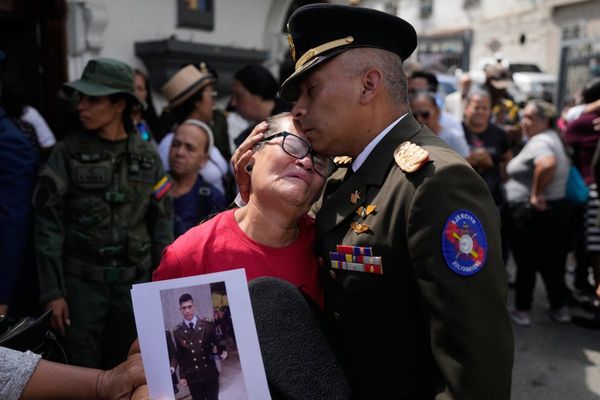
Since its inception, the international criminal court (ICC) has charged 50 people, 47 of whom were African. Its investigations have also been overwhelmingly focused on war crimes and crimes against humanity in African nations. What has long been understood but never stated is that the court and its processes, to put it bluntly, target a certain type of political leadership that is easier to go after. “The court is built for Africans and thugs like Putin,” is what one appalled elected senior leader reportedly told the ICC prosecutor, Karim Khan, when his team made a recent application for arrest warrants for Israel’s prime minister, Benjamin Netanyahu, its defence minister, Yoav Gallant, and three Hamas leaders.
Again, blunt, but not revelatory. At least not to the parts of the world that are more familiar with the court and its investigations. The lineup of suspects and defendants has long solidified the impression below the equator that the ICC is a court for Africans, and lately maybe Russians. How can that not be the takeaway when, in the years since the court was founded, the US – often with British support – has calamitously invaded Iraq and Afghanistan, established an extrajudicial prison for terror suspects, and created a CIA torture and detention network? African conflicts are seen as intimate, tribal and intentional in a way that those in other places are not. The underlying suggestion is that civilians in western wars are killed and illegally detained by accident, while other countries do this on purpose.
It would take a particularly gullible person to believe that it is only the actions of African or Russian leaders that meet the threshold for breaking the rules of engagement in conflict. But there was always a veneer of plausibility. That is now being stripped away by the US and Britain’s indignant rejection of the court’s move against Netanyahu, and the instruction from the international court of justice (ICJ) that Israel ought to protect Palestinians from genocide and halt its offensive in Rafah. Israel has sent its troops to invade another territory, causing the deaths of civilians in the process, yet we are encouraged to think of its campaign as falling along the same lines as all those other “good wars” the west has waged – another of those defensive moral missions during which unfortunate things have happened. Things that somehow never amount to the criminal, because the awfulness of war apparently can’t be avoided.
And besides, Israel is a democracy. The countries that don’t belong in the dock are the ones that investigate themselves, and are seen as not requiring the paternal oversight of global courts. The US Senate delivered a report and indictment of the CIA’s detention and interrogation techniques, while the Chilcot inquiry into the Iraq war condemned Britain’s military campaign and found that the legal basis was dealt with in an unsatisfactory way. That’s as far as the investigations went. The result was apologies (and unrepentant defiance from Tony Blair), and the performance of oversight was enough to maintain a veneer of justice.
Israel’s record obliterates all these exceptions. Its actions have failed to meet the standards set by its own allies for immunity from judgment. Civilian casualties in Gaza are too large to be written off as necessary collateral. Seven months in, and the goal of defeating Hamas is neither closer nor outlined in a coherent way. The famine and forced displacement of civilians are too systemic to be regarded only as unfortunate byproducts of the campaign. Israel’s reputation as a reliable democracy is shot. Its capacity to credibly investigate itself is too compromised by the short history of its pugnacious rightwing government that will brook no criticism, and its longer history of ignoring international law by allowing the expansion of settlements in occupied territories.
In continuing to treat Israel as a country that is responsible but whose actions are sometimes humanly flawed, its allies are making a perilous calculation that in the long run will undermine their own interests. Their support for Israel’s actions weakens not only international law, but the ability to hold their enemies to account and maintain red lines against belligerent countries in a world where the tools of the international system are becoming ever more important. Rising political and economic forces in Asia, the Middle East and South America are challenging Anglo-American models of power, and making their agenda harder to deliver.
Take the United Arab Emirates, a political player that was nowhere on the map 30 years ago. Today, it is an economic powerhouse and ally of the US, but it has also exchanged high-level meetings with Moscow since the invasion of Ukraine, and it continues to enable Russia to circumvent sanctions. There’s little the US can do about this. According to the Soufan Center, a global security and foreign policy research organisation, there is “little appetite in Washington” to do more than dish out warnings to the UAE.
The same goes for Qatar, which the US can only “urge” to expel Hamas’s political leadership from Doha. I’m old enough to remember a time when that language would have sounded unimaginably feeble. Rising volumes of trade between economies in the global south also increasingly cushion countries against the effect of punitive western sanctions. Chinese companies recently sanctioned for helping Russia belong to an economy that is Africa’s second-largest trading partner after the EU. Networks between sanctioned countries outside the regulated financial system are thriving. Gold, an unfreezable asset, has become a crucial part of how countries such as Russia, Venezuela and Iran engage in an international barter system.
In this new context, enforcement becomes crucial, but may be impossible. After their dismissal of the ICC and ICJ calls on Israel to comply with international law, how can the US and its partners make a convincing case again that their rules are fair and universal, and so must be followed by all? It is brazenly clear that the rules-based order is not about democratic values, the rule of law and the sanctity of human lives, but the observance of a global hierarchy in which some lives are sacred and others are not.
One day, the Gaza war will be over. And what will confront Israel’s allies is a world in which that logic, now plainly stated, is rejected once and for all. The stakes are higher than they realise. They will reap not only moral disgrace, but the crumbling of their entire postwar world order.
Nesrine Malik is a Guardian columnist
Do you have an opinion on the issues raised in this article? If you would like to submit a response of up to 300 words by email to be considered for publication in our letters section, please click here.







